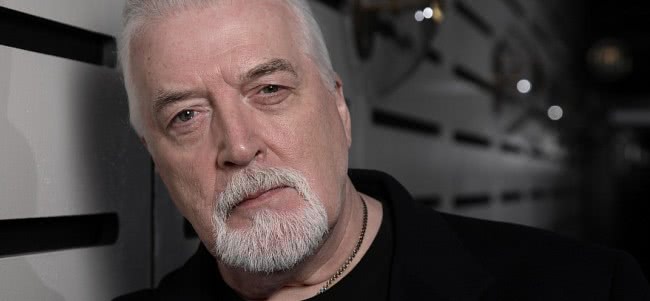Jon Lord, best known as the former keyboard player for rock band Deep Purple has passed away at the age of 71 from a pulmonary embolism, as well as a long battle with pancreatic cancer.
Lord co-founded Deep Purple and co-wrote many of the band’s songs, including the iconic ‘Smoke On The Water’, rollicking ‘Highway Star’ and the central organ part of ‘Child In Time’. After their split 1976, he went to find success with hair metal act, Whitesnake, before returning to the band for a reunion in 1984 until his retirement in 2002.
The later years of Lord’s career found him focusing on his classical composition until he was diagnosed with pancreatic cancer last year, breaking the news of his diagnosis to his fans over his website, telling them he would continue to compose as part of his therapy while beginning treatment last August.
He died at the London clinic on Monday 16th July, with a statement issued on his official website reading: “it is with deep sadness we announce the passing of Jon Lord, who suffered a fatal pulmonary embolism… after a long battle with pancreatic cancer. Jon was surrounded by his loving family.”
Born in Leicester on 9 June 1941, Lord learned was classically trained on piano from a young age before falling in love with rock ‘n roll. Though he received a drama school scholarship, which could have meant a career in acting, he began instead playing in local pub bands.
In 1968, Lord co-founded the first iteration of the British heavy rock act that would define his career, Deep Purple. Originally formed with drummer Ian Paice and guitarist Ritchie Blackmore, bassist Nick Simper and original singer Rod Evans. The latter two lasted three albums and departed in late 1969 to make way for the classic lineup that included vocalist Ian Gillan and Roger Glover on bass.
The band’s first breakthrough success, and also the first public taste of Lord’s classical composition, was with Concerto for Group and Orchestra, which Deep Purple performed with the Royal Philharmonic Orchestra at the Royal Albert Hall in 1969.
The keys virtuoso continued a parallel career as a classical composer and arranger alongside his role in one of rock’s most influential bands, playing a key role in the development of 1970’s Deep Purple In Rock and 1972’s Machine Head, arguably the band’s most influential records.
Lord remained with the band until their split in 1976, but soon found success with hair metal act Whitesnake from 1978 – 1984, including appearing on their biggest hit ‘Here I Go Again’.
In 1984, Deep Purple reunited and found renewed popularity and Lord remained until his retirement in 2002, a move first inspired by the 30th anniversary performance of Concerto for Group and Orchestra in 1999 with Deep Purple and the London Symphony Orchestra; allowing Lord to focus on his solo career in compositions and sporadically touring.
He would also return to his blues roots on occasion, such as in 2003, when as Jon Lord and the Hoochie Coochie Men he recorded a live album with Jimmy Barnes entitled Live In The Basement.
A statement from Lord’s family simply reads: “Jon passes from Darkness to Light.”




































